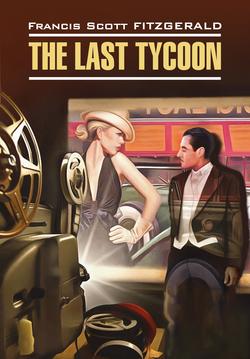The Last Tycoon / Последний магнат. Книга для чтения на английском языке

Реклама. ООО «ЛитРес», ИНН: 7719571260.
Оглавление
Френсис Фицджеральд. The Last Tycoon / Последний магнат. Книга для чтения на английском языке
Foreword
Chapter I
Chapter II
Chapter III
Chapter IV
Chapter V
Chapter VI
Notes
Chapter I
Chapter II
Chapter III
Chapter IV
Chapter V
Vocabulary
A
B
C
D
E
F
G
H
J
K
L
M
N
O
P
Q
R
S
T
U
V
W
Отрывок из книги
Scott Fitzgerald died suddenly of a heart attack (December 21, 1940) the day after he had written the first episode of Chapter 6 of his novel. The text which is given here is a draft made by the author after considerable rewriting; but it is by no means a finished version. In the margins of almost every one of the episodes, Fitzgerald had written comments – a few of them are included in the notes – which expressed his dissatisfaction with them or indicated his ideas about revising them. His intention was to produce a novel as concentrated and as carefully constructed as The Great Gatsby had been, and he would unquestionably have sharpened the effect of most of these scenes as we have them by cutting and by heightening of color. He had originally planned that the novel should be about 60,000 words long, but he had written at the time of his death about 70,000 words without, as will be seen from his outline, having told much more than half his story. He had calculated, when he began, on leaving himself a margin of 10,000 words for cutting; but it seems certain that the novel would have run longer than the proposed 60,000 words. The subject was here more complex than it had been in The Great Gatsby – the picture of the Hollywood studios required more space for its presentation than the background of the drinking life of Long Island; and the characters needed more room for their development.
The Last Tycoon is thus, even in its imperfect state, Fitzgerald’s most mature piece of work. It is marked off also from his other novels by the fact that it is the first to deal seriously with any profession or business. The earlier books of Fitzgerald had been preoccupied with debutantes and college boys, with the fast lives of the wild spenders[1] of the twenties. The main activities of the people in these stories, the occasions for which they live, are big parties at which they go off like fireworks and which are likely to leave them in pieces[2]. But the parties in The Last Tycoon are incidental and unimportant; Monroe Stahr, unlike any other of Scott Fitzgerald’s heroes, is inextricably involved with an industry of which he has been one of the creators, and its fate will be implied by his tragedy. The moving-picture business in America has here been observed at a close range, studied with a careful attention and dramatized with a sharp wit such as are not to be found in combination in any of the other novels on the subject. The Last Tycoon is far and away[3] the best novel we have had about Hollywood, and it is the only one which takes us inside.
.....
It was my first inkling that he was a writer. And while I like writers – because if you ask a writer anything, you usually get an answer – still it belittled him in my eyes. Writers aren’t people exactly. Or, if they’re any good, they’re a whole lot of people trying so hard to be one person. It’s like actors, who try so pathetically not to look in mirrors. Who lean backward trying – only to see their faces in the reflecting chandeliers.
“Ain’t writers like that, Celia?” demanded Schwartz. “I have no words for them. I only know it’s true.”
.....